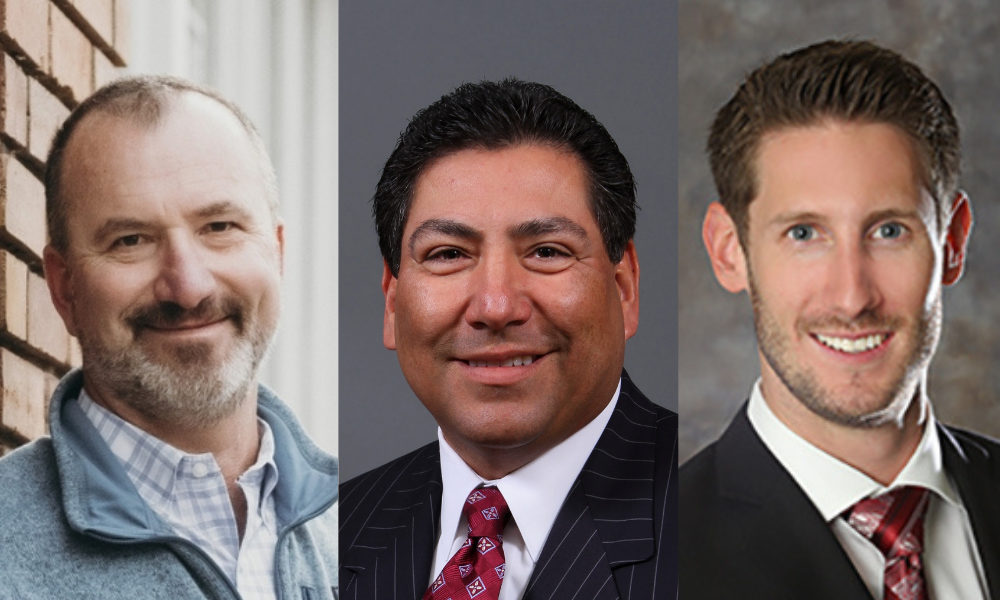

Timing, they say, is everything.
Especially when it comes to buying and selling financial securities where investors would almost always prefer to be lucky than good.
That said, when it comes to selling one’s wealth management practice, the general feeling among advisors is that market timing is not the best method for ensuring a successful succession.
Since 2020, the median adjusted EBITDA multiple for valuing RIAs has increased by nearly 40%, according to the RIA consulting firm Advisor Growth Strategies. In that time, average adjusted EBITDA multiples surged from 8x to 11x, representing “the influx of demand in the space, primarily driven by outside capital,” said Advisor Growth Strategies’ partner, Brandon Kawal.
The rise in valuations over the past 5 years parallels a more than 90% rise in the S&P 500. Nevertheless, Jesse Kurrasch, chief operating officer of The AmeriFlex Group, recommends advisors considering a sale keep their eyes on the multiple and the quality of their practice, rather than a highly volatile equity index.
“Likely the multiples being paid to advisors on their practice is far more important than where the stock market is headed, and how the practice is structured to fetch the highest valuation,” said Kurrasch.
Generally speaking, an advisory business is worth far more than a commission-based business. That’s why, according to Kurrasch, a seller who transitions their practice into advisory in the years before a practice sale will have spent their time in a far more valuable way than a seller who monitors market signals and tries to time the market.
Elsewhere, Gil Valadez, financial advisor at Prudential Financial, said market conditions and macroeconomic trends may make the timing of a transition seem more or less attractive on the surface, but they won’t be the driving force behind his own exit when that eventually occurs.
“My focus is on finding the right successor, someone who shares my values, puts clients first, and can guide them through all market cycles. With the right leadership in place, I believe this practice and the clients I've been privileged to serve will continue to thrive, regardless of short-term market signals. That’s what really matters to me as I plan this next chapter,” Valadez said.
Meanwhile, Richard Romano, managing partner and senior financial advisor, ARC Wealth Management, part of Stifel Independent Advisors, said only a “very extreme collapse of the markets” would affect my timing. He added that he is bullish on the future of ARC Wealth Management and part of his exit strategy reflects this view and helps provide a natural hedge against bad market timing.
“I will sell the first 50% of my interest three to four years before the second 50%. Thus, if timing is bad on the execution of the first sale, four years of corresponding market and business expansion will likely help when I sell the second portion,” Romano said.
Moving on, Kris Emick, first vice president of succession and acquisition solutions at Cambridge Investment Research, acknowledges the difficulty of the question, admitting that if he could predict the markets, he would be “spending my days on the beach.”
“Trying to time the market, whether for your personal portfolio or the sale of a business, is a risky approach. However, this challenge can be addressed through thoughtful deal structure,” Emick said.
Added Emick: “Sellers are wise not to tie the entire value of their transaction to market volatility. Instead, structuring a deal that balances the interests of both buyer and seller, focusing on client retention and long-term value creation, can create a true win-win scenario.”
When evaluating a potential buyer or successor, Michael Longley, chief growth officer at Sanctuary Wealth, does consider their ability to navigate market cycles.
In his view, when an advisor is exiting the business, they are ceasing to give advice and council to clients, friends and families they have worked with for decades. And while capturing the “right value of a life’s work is very critical, understanding who will carry on your legacy is of equal importance when thinking about your succession and exit strategy.”
Kurrasch, on the other hand, concentrates less on a successor’s ability to read market cycles than reading the clients themselves. Market cycles “come and go,” in his opinion, but a good fit is forever.
“The successor should have a congruent investment and fund management philosophy that fits with the current practice, these vary wildly, from active to tactical to passive. A generally passive advisor is unlikely to mesh well with a tactical manager successor, even if that successor supposedly has the ability to navigate market cycles,” Kurrasch said.
Finally, Prudential’s Valadez, maintains that market fluctuations are always a part of the picture, so he’s not looking for someone who can time the market.
“I’m looking for someone who can guide clients through it, just as I’ve always done,” Valadez said.

Catch-up contributions, required minimum distributions, and 529 plans are just some of the areas the Biden-ratified legislation touches.

Following a similar move by Robinhood, the online investing platform said it will also offer 24/5 trading initially with a menu of 100 US-listed stocks and ETFs.

The private equity giant will support the advisor tech marketing firm in boosting its AI capabilities and scaling its enterprise relationships.

The privately backed RIA's newest partner firm brings $850 million in assets while giving it a new foothold in the Salt Lake City region.

The latest preliminary data show $117 billion in second-quarter sales, but hints of a slowdown are emerging.
Orion's Tom Wilson on delivering coordinated, high-touch service in a world where returns alone no longer set you apart.
Barely a decade old, registered index-linked annuities have quickly surged in popularity, thanks to their unique blend of protection and growth potential—an appealing option for investors looking to chart a steadier course through today's choppy market waters, says Myles Lambert, Brighthouse Financial.
